Undecided Students
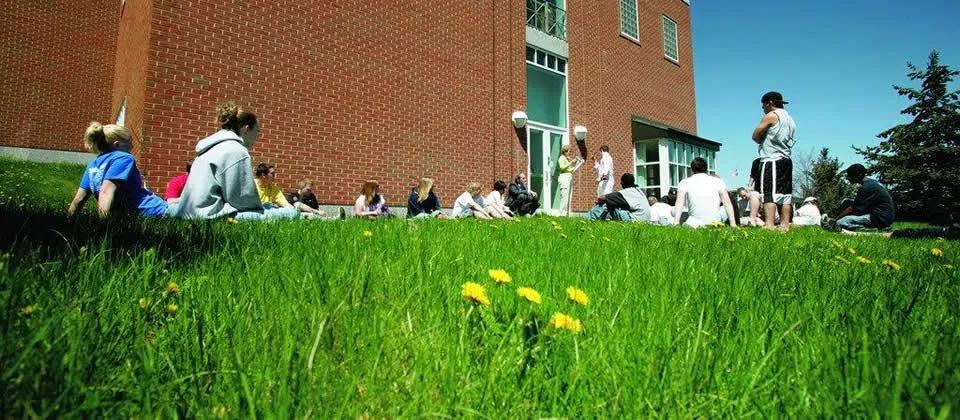
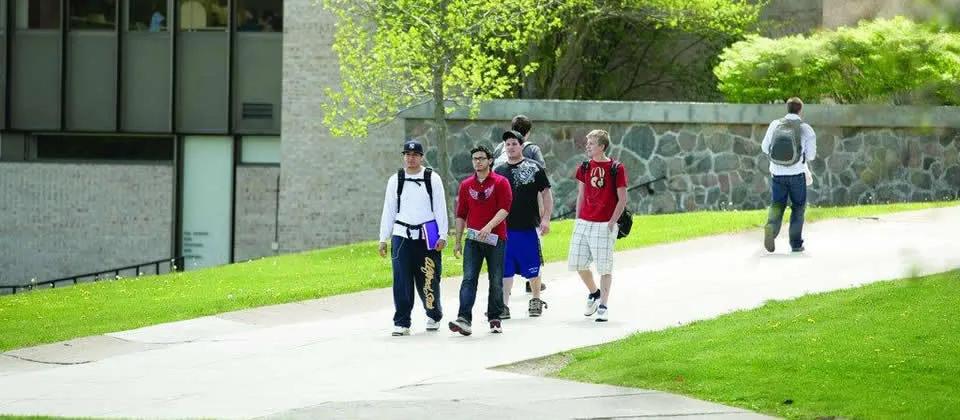
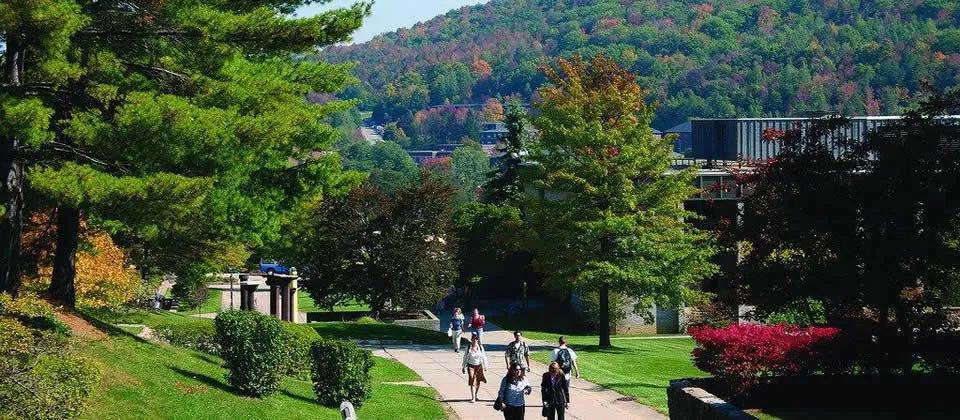
If you have trouble picking a career path or feel like you have too many interests pulling you in different directions, you are not alone – and we are here to help! To assist, we have an entire department devoted to flexible degrees and individual studies.
Flexible Degree Options
- Undeclared Major - First Two Semesters
- Individual Studies (AS)
- Interdisciplinary Studies (BTech)
How to Choose a Major
Our students tell us that Alfred State is the best choice for someone still on the fence when selecting a major. That’s because our programs are built to produce career-ready graduates. The more you learn about a major and it’s hands-on learning, the more insight you have into what it’s like to work in that field. Picking a major is a process that is just as individual as you are. One way to start is by browsing departments, then focusing on specific majors that resonate with you.
You may also want to evaluate the number of job opportunities when selecting a major. Because we work with employers to determine what skills are in-demand, many of our degree programs have more employers lined-up to offer jobs than we have graduates. Consider all your options. For example, what were once known as blue-collar jobs may now be called gold-collar jobs because of their earning potential. You may be interested to learn about the advantages of selecting a nontraditional career option because no job has a lock on the gender of applicants. Our career development center also offers an interactive student interest inventory to suggest possible career paths.
Student Support
Every student is assigned an academic advisor at Alfred State to work one-on-one together. This opportunity to ask questions and seek advice is a great resource for students throughout their college years. We offer extensive support including career planning and counseling. Many of our students have been in your shoes and found their way to a career they love. Alfred State's goal is to keep students on a productive path to complete their degree and to begin their career.
For inspiration while you are considering choices, here are resources that may help:
- Browse Departments to Sample Majors
- Majors with More Jobs than Graduates
- Pathway U Survey of Student Interests
- How I Chose My Major - Student Testimonials
- Career Development & Employment Rate Stats by Major
- Nontraditional Majors: Success Has No Gender
- Four Steps to Choosing a Major – Nathan Gebhard
- The Need for Job Skills Training – Mike Rowe
Don’t worry if you don’t know where you want to be 20 years from now. Even if you do have an idea, there is still a need to be flexible and adapt to unforeseen changes in order to succeed. Finding a career that is best for you, one that matches skills, interests, and opportunities while providing a family-sustaining wage is a journey of self-discovery and adaptability.
Want to discuss the possibilities for your future? We look forward to helping you.
admissions@alfredstate.edu or 1-800-4-ALFRED (800-425-3733)
Four Steps to Choosing a Major
From Nathan Gebhard, co-founder of Roadtrip Nation and co-author of “Roadmap: The Get-It-Together Guide for Figuring Out What to Do With Your Life.”
After 15 years of interviewing a wide variety of people from CEOs to camel ranchers, Nathan Gebhard found that most people are unsure when they’re starting out. Choosing a major is part of a larger, lifelong endeavor to channel interests, values, and skills. He outlines four steps for undecided students to choose a major:
1. Separate your goals from other people’s goals for you.
How do you quiet the noise that’s coming at you from family, friends and society? Parents suggesting you should be a lawyer, policy makers defining “success” in terms of paychecks, even the voice inside your head saying you’re not smart enough.
2. Forget passion; follow an interest.
Most advice about majors includes the admonition “Follow your passion.” But passion is something you discover over time, by finding an interest, however small, and nurturing it. There’s no epiphany; it’s a collection of small decisions that move you step by tiny step.
3. Put your decisions in real-world context.
Whether you’re attracted to something because of its promise of prosperity or because it stirs you on a deep level — neither inherently right or wrong — experts warn: Determine whether expectations match reality.
4. Yes, you do have to be good at it. Be flexible.
Dips in the job market, failing at a venture you wanted to succeed in badly, or just realizing that something isn’t as envisioned — these realities will force you to bend, contort or even redesign your ideal.
The complete article originally appeared in the New York Times.
How I Chose My Major
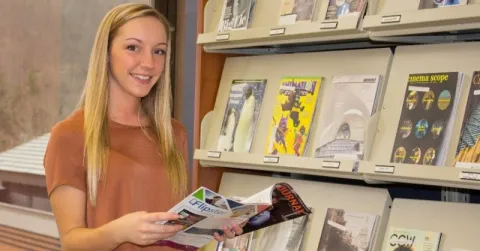
Kelsey Wolfer, liberal arts and sciences: humanities, Freedom
For many undecided students, finding just the right major happens after they have already begun in another program. Kelsey knew she made the right choice once she switched into Alfred State’s liberal arts and sciences: humanities program, and was able to expand and develop her writing abilities, while also learning a little bit more about herself.
“In every course, you get to discover different aspects of yourself that you didn’t know you had. Also, the professors are very helpful with critiquing and they always want you to progress no matter what.”
As a student who switched majors, Kelsey realizes the importance of finding a program that is just the right fit.
“A lot of people come into college and think about what they’re going to make the most money doing, and they’re not always happy with it, so I’d advise incoming students to get into something you really love.”
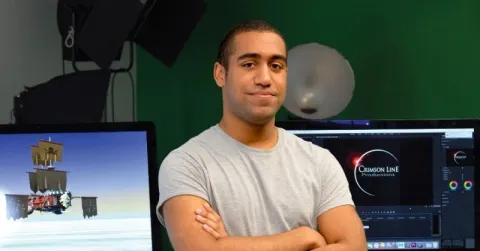
Colin Miller, digital media and animation, Livonia
For Colin Miller, the fact that Alfred State’s digital media and animation programs cover such a wide variety of areas - from 2-D to 3-D design, to video and sound production, and more - was a big draw for him.
“My major is what you make of it. It’s good to specialize in one thing, but it’s also good to spread your talents out into maybe three other areas, as well. That’s what I would suggest to any incoming students.”
In addition to helping him build a solid portfolio and providing a platform for him to showcase his talents, Colin also acknowledges that his program allowed him to find his “niche,” or rather what he would ultimately like to pursue a career in: video post-production.
“That’s one of the things that’s great about this major. Since there’s a wide variety of things to do, you find what your best work is in. You find your niche. It helps you figure out what you really want to do.”
Undeclared Major
"I appreciate that Alfred State offers an undeclared major as I get my feet wet."
Khira Barrett, Alfred State Alumni
Program Advantages
If you’re undecided about your career goals, the undeclared major may be right for you. This program gives you the opportunity to try different options and select a course of study the first two semesters that fits your interests and background. Along the way, you can take advantage of extensive support services, including career planning and counseling, offered by caring faculty and staff throughout the program.
Pioneer Quotes
"I appreciate that Alfred State offers an undeclared major as I get my feet wet. There are so many people here to help me while I decide my professional major. It's a friendly campus with lots of resources to guide students through any obstacle they may be facing." -Khira Barrett, Alfred State Alumni
Contact
Academic Advising Center
607-587-4122
Professional Outlook
Students enrolled in the undeclared major must transfer to a degree-granting program within two semesters. Depending on the choice of major, students may enter the workforce upon graduation, or continue their education in a bachelor’s degree program.
Individual Studies
"The individual studies associates degree allows students to create their own major."
Dr. Kathleen Casey, Dean of the School of Arts & Sciences
Program Advantages
This individual studies program, offered on campus or online, will give you the opportunity to explore majors, career options, and futures. It is also excellent preparation for transfer into four-year programs or various colleges and universities, and can be tailored to fulfill a career goal that cannot be met by traditional programs offerings.
Pioneer Quotes
"The individual studies associates degree allows students to create their own major, make progress toward a degree we may not have here, or assist students in completing a degree if they have changed their mind a few times." -Dr. Kathleen Casey, Dean of the School of Arts & Sciences
Contact
Academic Advising Center
607-587-4122
Professional Outlook
Employment and continuing education rate of 100 percent - 60 percent are employed; 40 percent transferred to continue their education.
Alfred State Catalog 2023-2024
Interdisciplinary Studies
"The interdisciplinary studies bachelor of technology degree is a great way for students to open up a variety of careers."
Dr. Kathleen Casey, Associate Vice President for Academic Affairs
Program Advantages
The bachelor of technology interdisciplinary studies program is designed to provide a four-year curriculum in which students are empowered to personalize, within specified core and concentration areas, their technology-based program of study.
Pioneer Quotes
"The interdisciplinary studies bachelor of technology degree is a great way for students to merge two or more subject areas for a unique or very specific degree focus while opening up a variety of careers or transfer options." -Dr. Kathleen Casey
Contact
Academic Advising Center
607-587-4122
Professional Outlook
The nature of the program allows for many occupational opportunities. Some of the more common interest areas are:
- Technical writer
- Health office manager
- Sales engineer
- Logistician
- Purchasing manager (i.e., for a hospital)
- Health and safety engineers
- Cost estimator
- Training and development specialist
- Computer systems analyst
- Occupational health and safety specialist
- Graphic designer
Employment and continuing education rate of 100 percent - 83 percent are employed; 17 percent transferred to continue their education.
Nontraditional
The US Department of Labor defines a nontraditional career as any in which one gender has less than 25 percent of the employment. Alfred State is committed to support Perkins Career & Technical Education initiatives to develop students with sharp and versatile minds along with the skills needed to land great careers. Over the years, traditional gender roles have limited the perception of job opportunities; therefore, men and women are often unaware of the variety of alternatives available to them.




